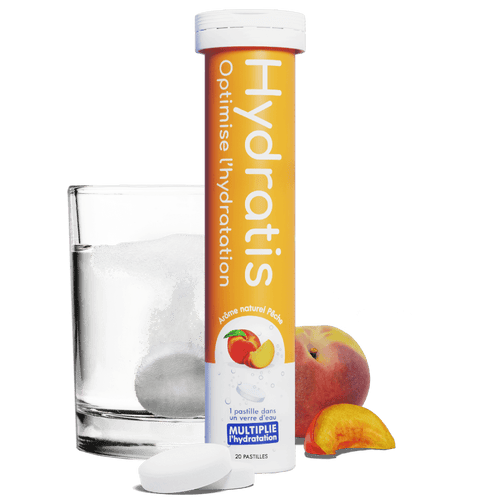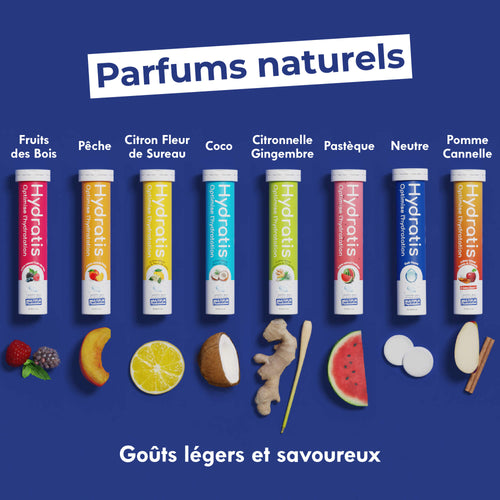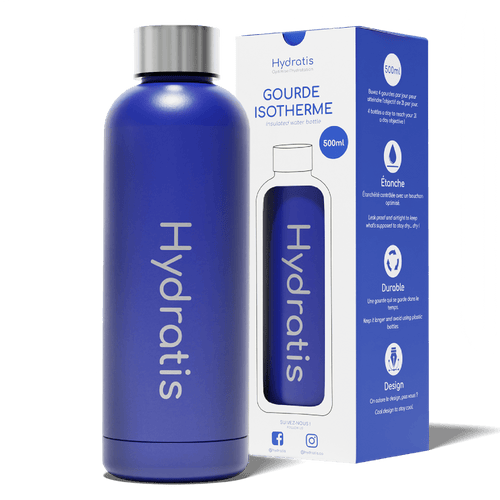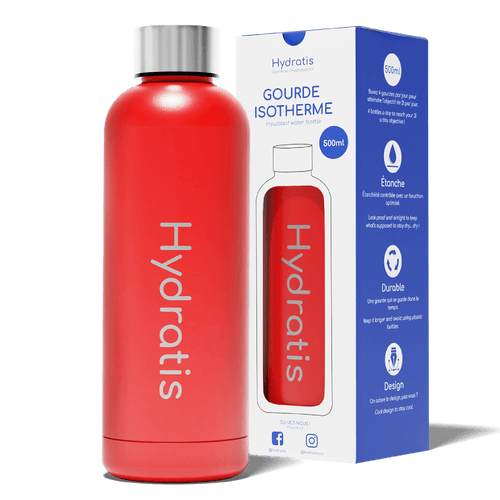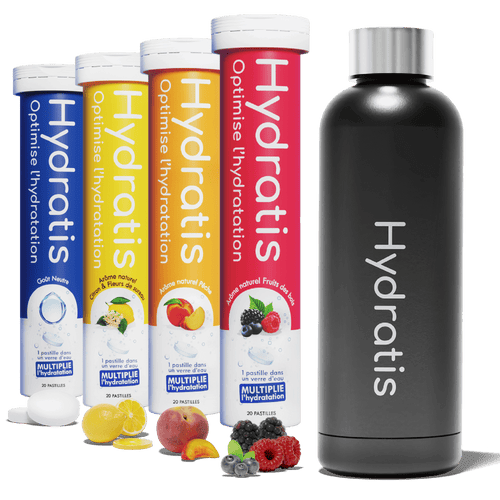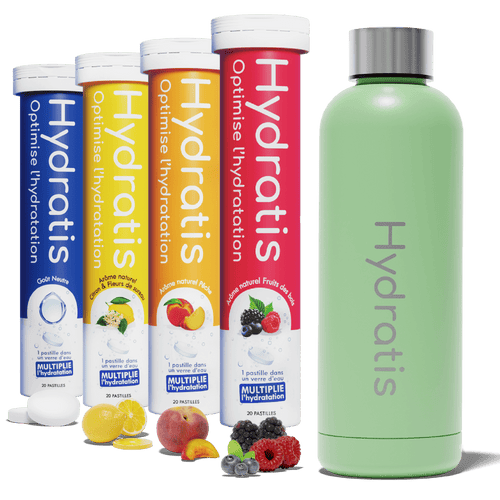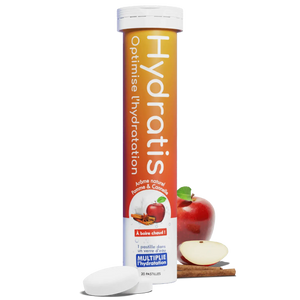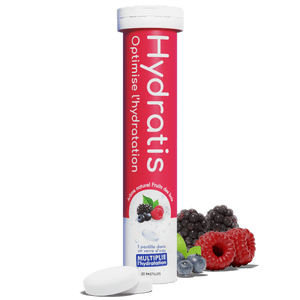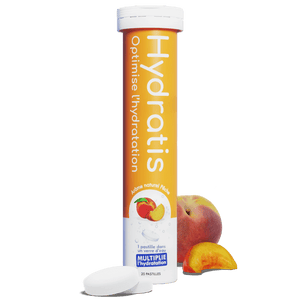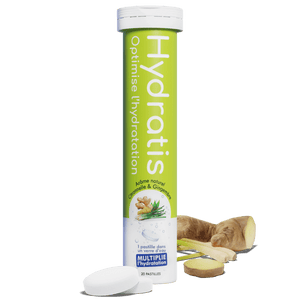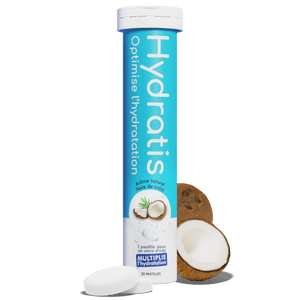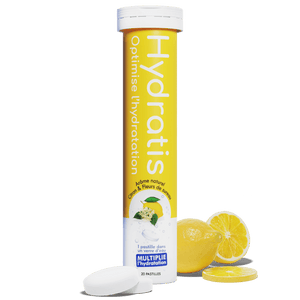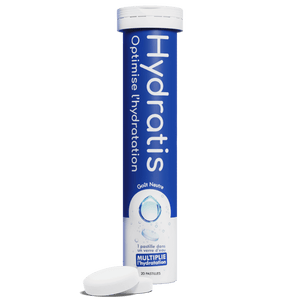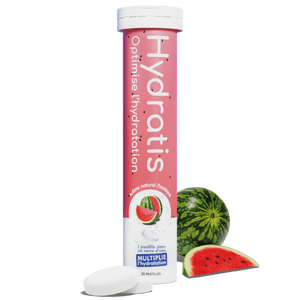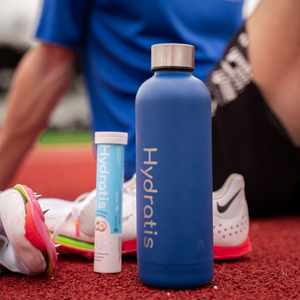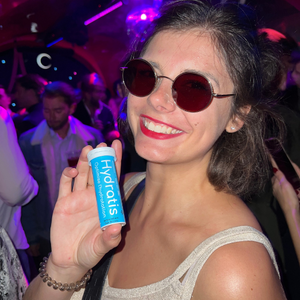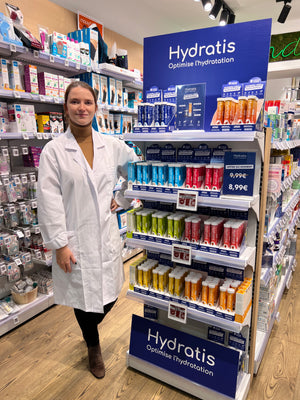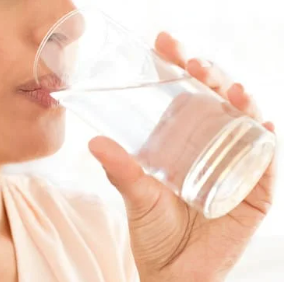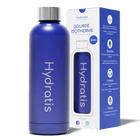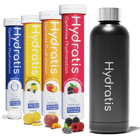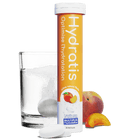
-
How does our hair grow?
Hair growth is a complex physiological process that involves several steps. First, hair follicles, which are tube-like structures located in the scalp, must be in the anagen phase, the active phase of hair growth. During this phase, the cells at the base of the follicle divide and produce new cells which differentiate into keratinocytes, the cells that form the hair shaft.
Keratinocytes form the hair shaft and rise to the surface of the scalp as new cells are created at the base of the follicle. Blood vessels provide the nutrients necessary for hair growth. After the growth phase ( anagen ) , the follicle goes through a transition phase ( catagen ) then a rest phase ( telogen ) where the hair grows to the surface thanks to the new growing hair.
The hair growth process is regulated by complex biochemical signals involving hormones, growth factors, other signaling molecules that interact with hair follicle cells. Additionally, testosterone and its derivatives can affect hair growth by regulating the activity of hair follicles. For example, baldness, or androgenic alopecia, is mainly due to genetic and hormonal factors. Indeed, baldness is mainly caused by an increased sensitivity of the hair follicles to a hormone called dihydrotestosterones. ( THD ) . There DHT is produced from testosterone, and in people who are genetically predisposed to baldness, the DHT can bind to hair follicles and cause them to shrink gradually, which shortens the hair growth phase and reduces hair thickness.
The balance of the scalp: how to maintain it?
Balancing the scalp is crucial for maintaining healthy hair and promoting hair growth. The scalp is an area of skin made up of hair follicles, sebaceous glands, blood vessels and nerves. It is also colonized by various microorganisms, including bacteria and fungi, which can influence the health of the scalp.
When the scalp is out of balance, it can lead to issues such as itching, dandruff, and excess sebum production. These conditions can negatively affect hair growth by disrupting the normal hair growth cycle. This is because excessive production of sebum by the sebaceous glands can clog the hair follicles, which can lead to hair loss or slow hair growth. Similarly, chronic inflammation of the scalp can damage hair follicles and lead to a reduction in their size and activity.
Growth disturbances or disruptors
Hormonal changes can affect hair growth, especially in women. For example, the imbalance of thyroid hormones, sex hormones or growth hormone can disrupt the hair growth cycle and lead to hair loss. Emotional stress can also play a role in hair loss by disrupting the normal hair growth cycle. Stress can also lead to hormonal imbalance and affect scalp health.
Finally, an unbalanced diet can lead to deficiencies in essential nutrients for hair growth, such as protein, iron, zinc and B vitamins. Obviously, the use of harsh hair products, such as hair dyes, permanent or relaxers, can damage hair follicles and lead to hair loss. This deficiency can slow hair growth and lead to hair loss.
How important are hydration and minerals to prevent hair loss?
Water is essential for hydrating hair and scalp. Insufficient hydration can make hair dry, brittle and prone to falling out. It is therefore important to drink enough water and use moisturizing hair products to keep the hair and scalp hydrated . Water plays an important role in regulating body temperature and transporting nutrients and oxygen to hair follicles. Hair is made up of approximately 25% of water, which means hydration is important to maintain hair flexibility, elasticity and strength.
Minerals , such as iron, zinc, magnesium, and copper, are also important for healthy hair. Iron is essential for the production of red blood cells which carry oxygen to hair follicles. Zinc is important for regulating tissue growth and repair, including hair follicles. Magnesium is involved in protein synthesis, which is necessary for hair growth. Copper helps in the formation of hair pigment and the formation of collagen.
A deficiency in minerals can lead to hair loss, as these nutrients are needed to maintain hair growth and health. It is therefore important to have a balanced diet and to consume foods rich in minerals to prevent hair loss. If a deficiency is suspected, mineral supplementation may be recommended under the supervision of a healthcare professional.
Hydratis can help you!
Hydratis offers perfect products to supplement your daily hydration and allow you to take care of the balance of your hair and scalp. The components present in the products make it possible to actively supplement your hydration. Hydratis has chosen to produce effervescent tablets because this form is very practical for perfectly dissolving in water and improving the absorption of the nutrients present in the tablets.
The pellets are composed of minerals and electrolytes. Minerals are essential nutrients for the health of your hair, which perform a variety of important functions. They are necessary for the growth, development and maintenance of healthy bones, teeth, muscles, organs and tissues. Electrolytes are also minerals but they are electrically charged. They are involved in many physiological processes in the body, including hair growth and the dermatological balance of the scalp.
Hydratis has therefore found the solution to optimize your hydration and provide each sip you drink with a long-term nutritional contribution.
All you have to do is try, good hydration to all!
